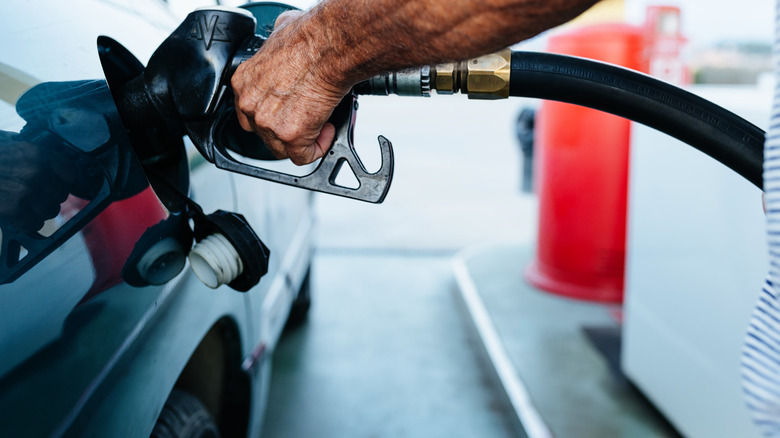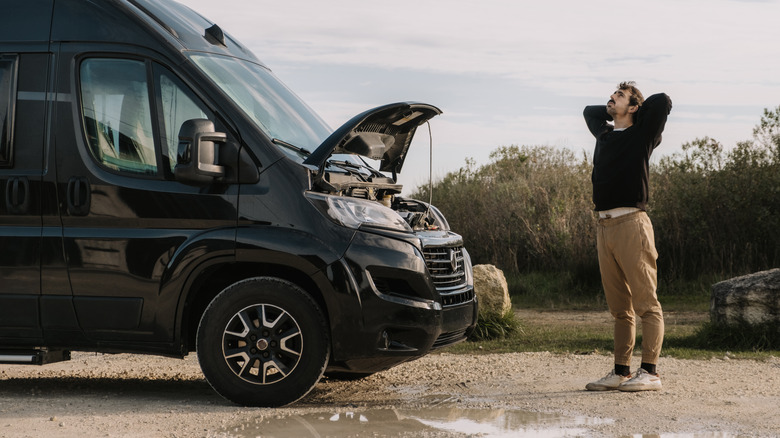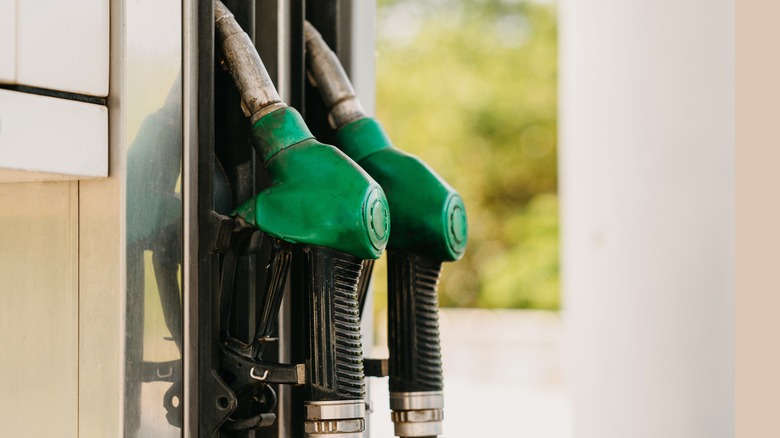Heed the advice on the cover of the Hitchhiker’s Guide to the Galaxy and don’t panic, at least not yet. Or, maybe just panic a little on the inside, but maintain your calm demeanor on the outside. Putting gas in a diesel fuel tank isn’t automatically a death knell for your car or truck, but it certainly could be if you start driving. You don’t want gasoline getting into your diesel engine because it’ll wreak absolute havoc. The most important thing you can do if you accidentally put 87-octane into your Cummins-powered Ram, Mercedes 300D, or cool diesel SUV like the Porsche Cayenne is not to drive it or even start it. If you’ve already left the fuel station, and you’re cruising around, first of all, stop reading this article and pay attention to the road, then pull over and shut off the vehicle.
Is the car off? Good. Call a tow truck, because you don’t want the car to move another inch under its own power, assuming it even can at this point. When diesel engines are contaminated with gas, the engine will run rough, lose power, belch smoke, make expensive-sounding noises, and probably quit running entirely.
If you must panic, here are your three panic levels
Let’s cover the levels of panic you should have and what you must do depending on how far gasoline has infiltrated your diesel vehicle. First, you just put gas in the tank but haven’t started the engine yet. This is your best-case scenario because you can probably get away with having a mechanic remove the gas and clean the tank and its in-tank pump. Second, you started the car and ran it for a few seconds before you realized your mistake. Gas has made it through the fuel lines to the fuel filter. Not only will you have to have your tank flushed, but you’ll have to have your fuel lines cleaned or replaced (fingers crossed the shop just needs to shoot some brake cleaner and compressed air through the lines), and you’ll have to get a new fuel filter and possibly its housing, too.
Lastly, you’ve been driving the car around for a while, and you’re noticing the telltale poor engine performance that results from gas in your diesel. This is where your wallet will start hemorrhaging, especially if you own something as complex as the VW V10 TDI Touareg. Once gasoline hits the electronic and high-pressure fuel pumps, there are going to be a lot of parts that need replacing.
First, the pumps themselves will wear quickly and likely introduce metal shavings into the fuel stream. Gasoline will then start to damage the fuel injectors, as they aren’t designed with gasoline’s chemical properties in mind. Once gas hits the combustion chamber, it will lead to overheating and damage to the pistons and cylinders. Carbon buildup can even cause the valves to stick, messing up compression.
Why gas is so destructive to diesel engines
The chemical makeup of diesel and gas is drastically different. Unlike gasoline engines, diesel powerplants rely on the lubricating properties of their fuel to prevent parts from shaving off their internals and releasing metal shavings into the fuel stream. Then there’s the fact that gas won’t ignite properly in a diesel engine. Diesel has a way higher ignition temperature than gasoline, so the gas will likely prematurely detonate in the absurdly high compression that diesel engines use to ignite the fuel. This compression ignition is cool because it doesn’t need spark plugs to work, but it’s also terrifying because it’s what causes diesel engine runaway.
You might wonder whether people with gas-powered cars put diesel in their tanks by accident, and yeah, it does happen, it’s just harder to do. Diesel dispensers are designed so that they won’t fit in most gas tank filler necks, making “diesel in a gas tank” rather a feat to accomplish.
So, sorry, diesel drivers, it’s on you to pay attention to the kind of fuel you pump in. When you’re pulling into a fuelling station, you can’t necessarily rely on pump color, either, since diesel pumps can also be yellow, red, black, or whatever the fuel station wants. Your only recourse is to just double-check the writing on the pump.




